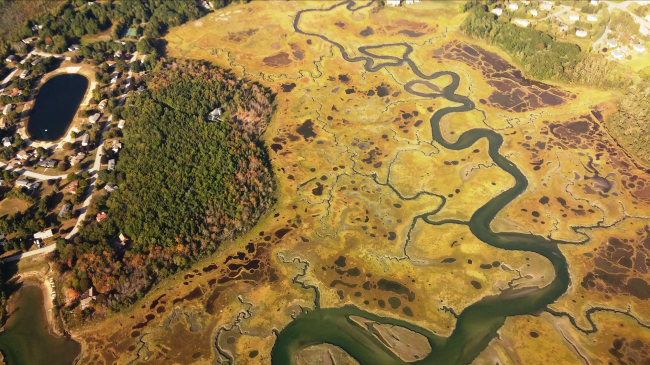
Reef fish at French Frigrate Shoals in the Papahanaumokuakea Marine National Monument. (Image credit: NOAA)
Today, the United States, United Kingdom, Chile, Costa Rica, and France announced a new global partnership to advance the role of Marine Protected Areas (MPAs) as a nature-based solution in the fight against climate change. The announcement comes ahead of the United Nations climate change (COP 26) and biodiversity (COP 15) conferences later this year.
“The climate crisis is having profound impacts on marine ecosystems,” said John Kerry, Special Presidential Envoy for Climate. “At the same time, the ocean is a source of sustainable climate solutions. These include marine protected areas, which can help build climate resilience and store carbon, while conserving biodiversity. This is a decisive decade to dramatically scale up ocean and climate action — which are two sides of the same coin.”
“All nations rely on healthy marine ecosystems to support life on this planet,” said Jane Lubchenco, Deputy Director for Climate and Environment at the White House Office of Science and Technology Policy. “Marine protected areas — but especially highly protected ones — are an effective nature-based solution for adapting to and mitigating climate change and conserving biodiversity. Nations must act now to protect key ocean habitats and the services the ocean provides to nature and people.”
The International Partnership on Marine Protected Areas, Biodiversity and Climate Change offsite link, with scientific support from members of the International Union for Conservation of Nature offsite link and the Marine Alliance for Science and Technology offsite link for Scotland, will work with global leaders to ensure they have the information and tools needed to understand the contribution of MPAs, and the biodiversity they protect, as a solution in helping mitigate and adapt to the effects of climate change on the global ocean.
The government agencies represented in the partnership include: The Joint Nature Conservation Committee (JNCC), supported by Defra, United Kingdom; Ministry of the Environment offsite link, Chile; National Oceanic and Atmospheric Administration (NOAA) Office of National Marine Sanctuaries, United States; Ministry of Energy and Environment offsite link (MINAE), Costa Rica; and the French Biodiversity Agency offsite link (OFB), France.
“Global collaboration is key to realizing the climate benefits provided by Marine Protected Areas,” said Ben Friedman, acting NOAA administrator. “Members of the partnership are committed to sharing knowledge and expertise, and working cooperatively to address scientific knowledge gaps. Together, we will develop a deeper understanding of how Marine Protected Areas may combat climate change while supporting sustainable economic development.”
As the Earth’s temperature rises, climate change and ocean acidification are affecting species, ecosystems and people around the globe, jeopardizing food security, shoreline protection, individual livelihoods, and sustainable economic development.
While enhanced greenhouse gas reduction targets are vital to protect the ocean and avoid further irreversible impacts of climate change, MPAs are increasingly recognized as a key tool for maintaining and restoring ecosystem resilience, and providing positive outcomes for biodiversity. MPAs can protect habitats that capture and/or provide long-term “blue carbon” storage of atmospheric carbon, including salt marshes, seagrasses, mangroves, and the seafloor. They also conserve biodiversity, and provide many ocean and coastal ecosystem services including storm protection and erosion control, food production, employment opportunities, and recreation and tourism. Well-integrated MPA networks also increase species survival by allowing them to move around to reduce exposure to certain pressures such as rising sea temperatures.
The partnership has launched a website www.mpabioclimate.org offsite link with tools and case studies about MPAs and will host webinars in each partner country on the role MPAs play in addressing climate change and conserving biodiversity.
Media contact
Jennie Lyons, 202-603-9372



